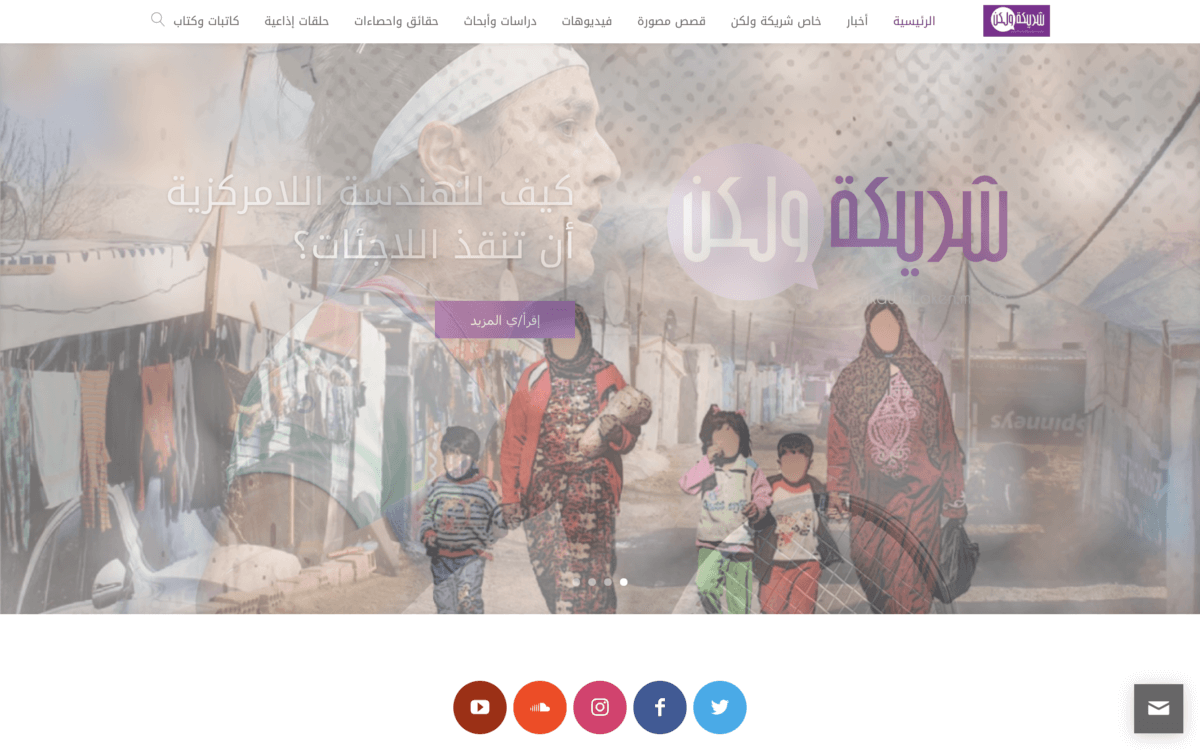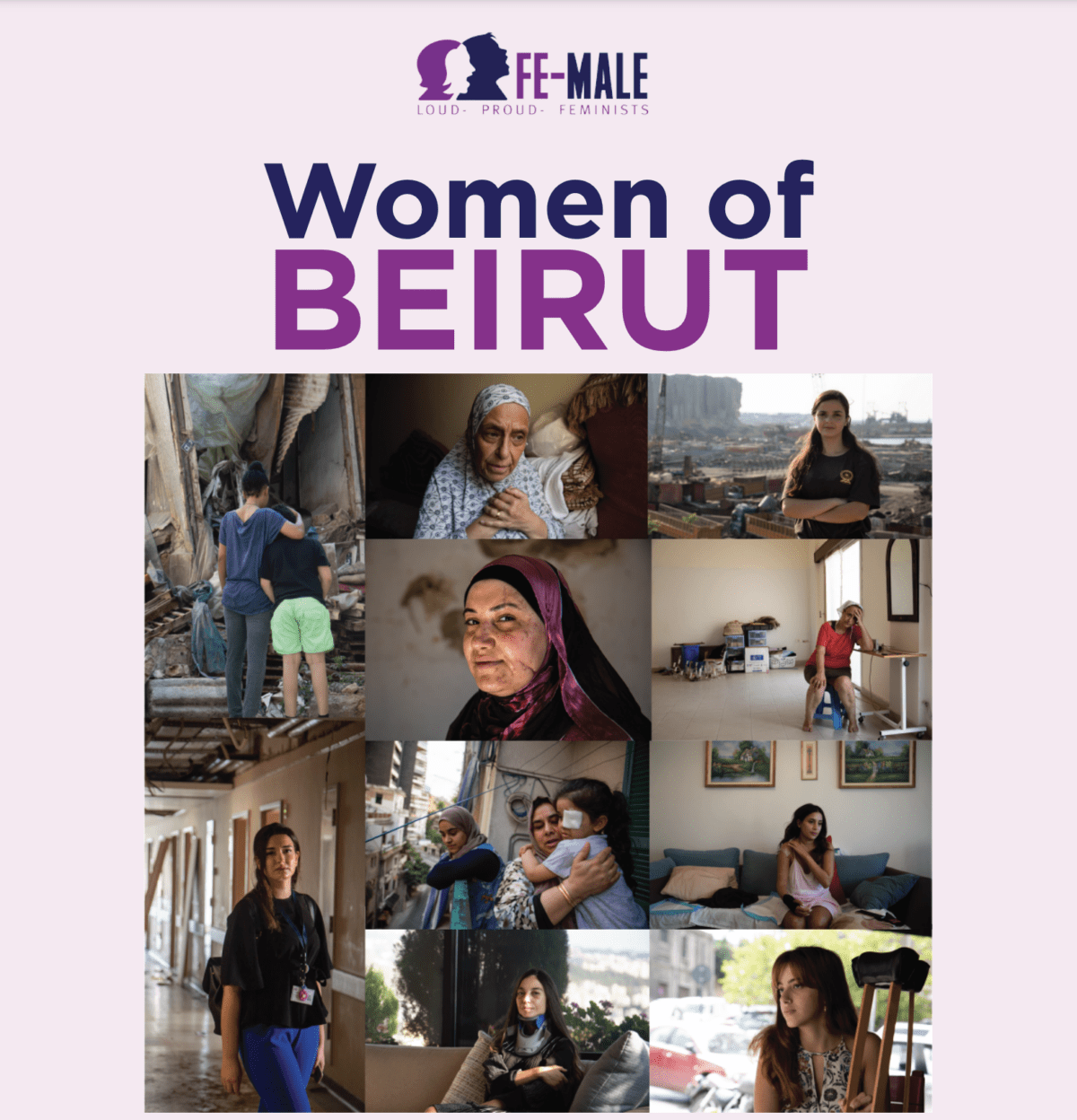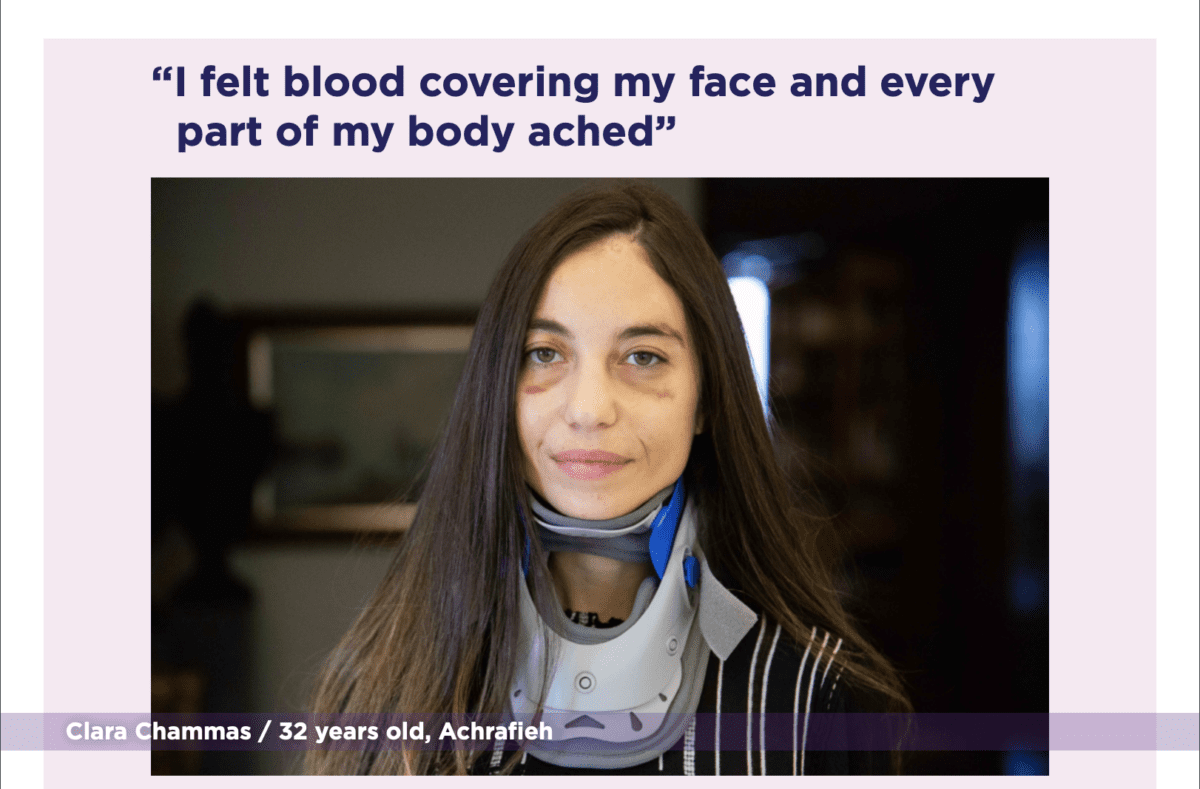by Kathryn Cleary
The COVID-19 pandemic may have quieted the streets of Beirut, but local powerhouse feminist organisation FE-MALE, haven’t let the lockdown slow their impactful work with women and girls in Lebanon. Speaking to the Health Journalism Network, co-directors Aliaa Awada and Hayat Mirshad, divulge just how FE-MALE has overcome challenges during the pandemic, and their plans for the future.
“FE-MALE is a feminist collective based in Lebanon,” says Awada. She adds that one of their main goals is to spread feminist knowledge throughout Lebanon, predominantly through their website called Sharika Wa Laken (SWL), in English this translates roughly to “partner (but),” says Awada.

SWL was the first website for feminist content in the country. What started initially as a radio programme, has quickly become a community, which features new content daily and provides a platform for feminist campaigns. “We use it for anything relating to women and girls, vulnerable groups like domestic workers, and LGBTQI+ communities,” adds Awada.
In the beginning, FE-MALE was solely based in the capital of Beirut, but over the last three years, it has expanded to establish feminist clubs in north and south Lebanon, says Mirshad. “Yearly we increase our membership and increase our capacity to be able to engage with more people about feminist issues,” she says.
During the pandemic, cybersecurity became a major concern to women and girls in Lebanon.
“The digital violence against women and girls increased dramatically,” explains Awada, “we launched a campaign to equip women and girls with tools and knowledge to protect themselves online.”
Another project that FE-MALE spearheaded last year, was a series of ten photo stories featuring women and young girls who had been impacted by the Beirut blast. The stories were supported by the Internews Information Saves Lives Rapid Response Fund, and were published in both English and Arabic.

“The real impact of these stories is actually the support that these women and girls got from the public,” says Mirshad. Through the use of the SWL website, FE-MALE was able to link the women and girls featured in these photos stories to care and support systems.

Adding to this, Mirshad highlights that the issue of ‘period poverty’ – or limited to no access to sanitary products – is a core advocacy topic for FE-MALE, and was worsened by the pandemic. “The whole situation, economic crisis, plus COVID-19, plus the Beirut blast, [has] mental health consequences on women and girls, so I can say that issues like period poverty, could be seen as a challenge.”
During the pandemic, FE-MALE took up door to door distribution of sanitary and hygiene kits to vulnerable women and girls throughout communities in Lebanon. This hands-on approach was just one way that the organisation adapted to new challenges as a result of the pandemic.
One of the other main challenge is the increase in the needs of young girls and the change in priorities, says Mirshad. Similarly, to the rise in cybersecurity issues, the lack of sanitation and hygiene products was a growing gap that FE-MALE sought to immediately address. As a result, the organization has had to change their approach from advocacy work, to community-led interventions to address the basic needs of women and girls.
This shift of focus revealed to both Awada and Mirshad, deeper tensions within the communities they work.
“Now the need is great, and the resources are small, a reality that is creating more tension within communities [and different population groups]”
Hayat Mirshad
Distributing hygiene kits has been no easy task for FE-MALE, but they continue to strive towards inclusivity based on their capacities. Mirshad explains that whenever they do distribution, they try to visit the most vulnerable areas and make efforts to network with other organizations who also work with vulnerable and marginalized groups.
“We do door to door distribution, and we try to ensure that these streets include both Lebanese, Syrians, Palestinians, and also migrant workers. We follow the door-to-door approach and we don’t leave any door behind. We also try to partner with organizations that can reach even more vulnerable [groups], like an organization that works with women with disabilities [and] we provide them with kits to distribute. We’ve [also] partnered with organizations working with LGBTQI individuals [and] women living with HIV,” she says.
“We have an economic crisis, the COVID-19 crisis and the political crisis, none of our governmental [institutions] function in a normal way. When we go out and speak about the needs of women and girls we are always met with ‘no it is not time for this’, now more than ever we are facing challenges relating to getting these rights because they have always been de-prioritized, but now with all the crises going on it has been even more challenging.”
Aliaa Awada
To further understand the immediate needs of women and girls within their community and networks, Sharika Wa Laken has an online forum for users to submit any requests or questions they have. “Before the lockdown we weren’t receiving any messages related to hygiene kits or food assistance or income support, but during the lockdown we were receiving this a lot, so we were linking the women and girls to the right channels where they can get the support. We always document and try to gauge what the changes are in behaviour and the type of support they are seeking based on the context,” says Awada.
So, what’s next for FE-MALE? An enthusiastic Mirshad says that once the pandemic eases, they plan to be back in the communities. “What we are aiming for is to be back to the activism that we used to do on the ground, before [COVID-19]. FE-MALE is not only an organization that implements projects, but it is a grassroots and activism organization and we want to organize. We need to go back to the streets and organize a feminist march because we have a role to play in the current situation,” she says.
Readers note: Mirshad was chosen as one of the BBC’s top 100 inspiring and influential women in 2020 for her exceptional feminist activism and grassroots work in Lebanon. Congratulations!